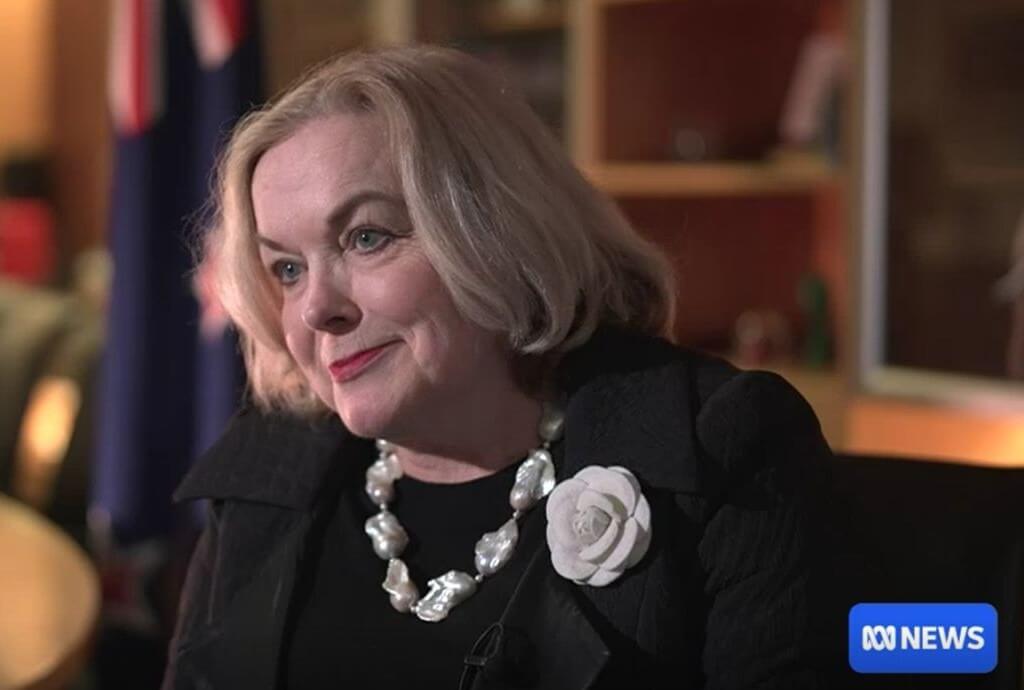In brief
- David Seymour opposing Treaty education clause backfooted Peters.
- A meaningful Treaty review is vital to NZ First’s credibility.
- MACA reform appears to be in limbo.
- Maorification will be a pivotal topic at next year’s election.
After NZ First leapfrogged Act last month in a Taxpayers’ Union-Curia poll — which led to much media excitement about the party’s rising fortunes — it seemed odd for Winston Peters to be quite so tetchy with journalists seeking his opinion on David Seymour’s views on karakia, traditional Māori prayers or incantations used to open or bless events, buildings, or gatherings.
Asked about the Act leader’s criticism of the use of karakia in “the opening of new government buildings,” Peters said: “Why am I responding to what David Seymour doesn’t know?”
Peters referenced his own long experience in “defending and knowing what we’re talking about when it comes to the right occasion for the right protocol,” before concluding: “It depends on the building. It depends on the occasion… Karakia are appropriate when used correctly.”
Perhaps the reason he sounded rattled is that Seymour has been making the running recently in opposing te ao Māori and tikanga being forced on the public, including what he has called “ceremonial chanting,” a reference to the mandatory use of karakia in resource consents, including for projects such as solar farms, supermarkets, and housing developments.
Peters has now leapt back into the limelight with his criticism of the use of “Aotearoa New Zealand” in Parliament and elsewhere — while Act’s deputy leader, Brooke van Velden, who is the Minister of Internal Affairs, has also entered the fray with a promise that the words “New Zealand passport” will precede “Uruwhenua Aotearoa” as soon as old stock is used up.
However, her trainwreck interview on The Platform last week over the fire service embedding “kaupapa Māori” throughout all its operations must have had Seymour burying his head in his hands.
Advantage in the battle for pre-eminence in repulsing race-based policy can switch quickly. Peters was seriously backfooted in early July when Seymour, who is Associate Minister of Education, told journalists he had argued to remove the contentious reference to the Treaty in section 127 of the Education and Training Amendment Bill (No 2) that requires school boards to “give effect to Te Tiriti o Waitangi” but he had been overruled by his Cabinet colleagues.
In contrast to Seymour’s outspokenness about s127, Peters appeared evasive when he was interviewed on The Platform. Sean Plunket asked testily why the government wouldn’t “get rid of that clause” — adding: “Why the hell is that in there in the first place?”
Peters outlined the “full review” of Treaty clauses in legislation that NZ First had made part of its coalition agreement and promised that if any were “not appropriate” they would be removed. He said the review, overseen by Justice minister Paul Goldsmith, would be finished by “the end of the year.”
If a particular clause “should not be there… we’re going to take it out under our separate legislation.”
Plunket: “Well, how long is that going to take?… The coalition government has been in office for 18 months?”
Peters didn’t answer the question directly — instead he recited some of the coalition’s achievements, including laws against coward punches and shoplifting.
In his defence of s127 not having been removed, Peters wandered into slippery terrain: “What has happened here is that Erica [Stanford] has picked up legislation with an inherited clause, which, sadly, seems to have been discovered by some people for the first time. It was in previous legislation…”
Inherited from previous legislation? What Peters didn’t mention was that the Treaty clause the Minister of Education had slightly rejigged in her amendment bill was “inherited” from the Labour-NZ First coalition government in 2020.
NZ First unanimously voted for the Education and Training Bill (2020) at all three readings in Parliament. Furthermore, NZ First’s Tracey Martin was Associate Minister of Education.
Peters’ explanations obviously didn’t convince Plunket, who asked in exasperation: “Are you going to get rid of [the Treaty clause]? It’s the only question people want the answer to.”
Again, Peters was evasive and did himself no favours.
With a general election next year, a lot hangs on the outcome of the review and whether any of its recommendations are acted on this term. If the review satisfies critics of Maorification, and legislation is tabled, it will significantly boost Peters’ credentials as a wise political veteran. If not — and if legislation is deferred until the next term of government — Act will be able to use it as a stick to beat NZ First during the election campaign. And it’s a safe bet Maorification will be a hot-button topic for all three Coalition parties next year, just as it was before 2023’s election.
In the long-running contest between Act and NZ First for the mantle of who can offer the best solution to the infiltration of references to the Treaty and principles into the nation’s laws and official policy, one conclusion is inescapable: so far this term, it has been Seymour who has drawn the most fire and who has been identified by Māori activists as the major threat to their push for an ethno-state.
Seymour’s Treaty Principles Bill, which would need to be ratified or rejected by a referendum, ignited a firestorm of protest and hostility — including a nationwide hikoi and Te Pāti Māori’s intimidating haka in Parliament in front of Act MPs and their leader.
It also sparked an impassioned debate on the role of the Treaty — with Chris Hipkins describing the bill as having a “colossal impact on the fabric of our nation.”
Peters’ proposed review of Treaty clauses, however, has barely caused a ripple among those who were vehemently against Seymour’s principles bill — even when they knew National and NZ First had agreed it would not progress beyond the select committee stage after a first reading.
Peters repeatedly scoffed at the bill on the grounds that the text of the Treaty itself has no principles and touted his promised review as a superior means of combating the Maorification of policy and law. But if it turns out to be a damp squib, with only token excisions recommended after long consultation, he will have a lot of trouble convincing voters he’s the man for the job.
Peters not only poured scorn on Seymour’s bill, of course. In conjunction with National, he voted against it at the second reading, alongside his caucus (and all three Opposition parties). This despite Curia polling last October showing a majority of NZ First voters supported the bill.
Act’s Regulatory Standards Bill is also drawing sustained fire because it makes no reference to Te Tiriti. Some legal experts and critics have dubbed it “Treaty Principles 2.0”, suggesting it will have the same effect as the principles bill in diminishing the importance of Te Tiriti in the law.
Māori activists even felt moved to complain about the bill to Albert Barume, the UN Special Rapporteur on the Rights of Indigenous Peoples, who castigated the coalition government for “a persistent erosion of the rights of the Māori Indigenous Peoples… through regressive legislations and policies” that had the potential to breach New Zealand’s international obligations.
As the Minister for Regulation, Seymour was not slow to reply to the letter, stepping on Peters’ toes in the process. And his response gave him a chance to remind voters he has Māori lineage: “As an Indigenous New Zealander myself, I am deeply aggrieved by your audacity in presuming to speak on my behalf and that of my fellow Māori” — and later in the letter he referred to “Māori voices, including my own…”
Although he agreed to withdraw his letter in deference to Peters’ role as Foreign Minister, Seymour’s quick defence of the nation’s sovereignty in determining cultural and race issues made NZ First’s leader appear flatfooted, even if he was following protocol.
“This is a matter of experience here, and it’s called diplomacy,” Peters told reporters. “Experience is important in this business.”
He is still in the process of consulting affected ministries ahead of the 11 August deadline for a response.
A major issue that is undermining Peters’ stocks is that the progress of the Marine and Coastal Area (Takutai Moana) (Customary Marine Title) Amendment Bill — which was promised in NZ First’s coalition agreement and introduced to Parliament in late September — has been stalled in Parliament for seven months.
A hasty Supreme Court decision late last year effectively spiked Peters’ guns by overturning a Court of Appeal judgment that had made the granting of customary marine title (CMT) to iwi much easier to obtain.
Paul Goldsmith has given no indication of when the government will decide whether the Supreme Court’s intervention has resolved the issue that the MACA amendment bill aimed to clarify. Meanwhile, in July, a High Court judge granted CMT to five Māori groups along the Kāpiti-Manawatū coastline.
Ironically, it has been suggested that the government is dragging its feet on the issue because it desperately wants to avoid another eruption of protests over Māori race-based rights on the scale that Seymour’s Treaty Principles Bill sparked.
Graham Adams is a freelance editor, journalist and columnist. He lives on Auckland’s North Shore.



















